- Home
- C. R. Daems
Desperate Measures: The Issog
Desperate Measures: The Issog Read online
DESPERATE MEASURES
By
C. R. Daems
Desperate Measures: The Issog
Copyright © 2017 by C. R. Daems
No part of this book may be reproduced or transmitted in any form or by any means, graphic, electronic, or mechanical, including photocopying, recording, taping, or by any information storage or retrieval system, without the permission in writing from C. R. Daems.
This book is a work of fiction. Names, characters, places, and incidents are products of the author’s imagination or are used fictitiously. Any resemblance to actual events or locales or persons, living or dead, is entirely coincidental.
ISBN-10: 0-9863514-5-8
ISBN-13: 978-0-9863514-5-7
Check out all my novels at:
crdaems.com & talonnovels.com
FORWARD
CHAPTER ONE
Seeking Allies
The Council of Commanders
Office of the Secretary General
CHAPTER TWO
A Roll of the Dice
A Time to Relax and Heal
A New Beginning: Phase I
A New Beginning: Phase II
A New Beginning: Phase III
CHAPTER THREE
Breakthrough
Odin Phase IV
CHAPTER FOUR
The Mactans
Finally Aboard the Odin
CHAPTER FIVE
Shakedown Cruise
CHAPTER SIX
Joining the Sixth Fleet
Engagement at Durban
CHAPTER SEVEN
Commander Akar of the Mactans
CHAPTER EIGHT
Waiting upon the Issog
CHAPTER NINE
Utopia: Admiral Fossett—Retreat or Hold
New Hope
New Hope, Four Days Later
CHAPTER TEN
Utopia: Admiral Fossett-What's Next?
CHAPTER ELEVEN
New Hope
CHAPTER TWELVE
Durban Revisited
CHAPTER THIRTEEN
New Hope. Celebration
Simons Visits Utopia
CHAPTER FOURTEEN
Surprise Visit
CHAPTER FIFTEEN
Fight for Survival
CHAPTER SIXTEEN
Switching Enemies.
CHAPTER SEVENTEEN
Battle for Utopia
CHAPTER EIGHTEEN
Negotiating Peace
FORWARD
Having discovered faster than light travel in the 25th century, humans began leaving their overcrowded planet two centuries later. They discovered millions of potential Earth-like solar systems. They called the first planet to be settled Utopia, not because the climate or terrain was better than their home planet in its prime, but because they had finally arrived at their new home. Utopia represented a new beginning for humanity, with room to grow and expand. Their old system was in its death throws. Fifty billion people had depleted its ability to regenerate.
In the first two centuries after leaving, their growing navy explored the rivers of energy that took them faster-than-light to nearby solar systems and discovered thirty-one suitable for human habitation. That presented an opportunity for like-minded groups to create their own vision of a perfect society, and slowly, each system was inhabited. Of course, human involvement made a perfect society an impossible dream. Utopia fared better than most, since it didn't try to be perfect and settled for a modified democracy.
In the year 241, by the Utopian Calendar, scientific wisdom and man's arrogance suffered a death blow. Not only was man not alone—which some had theorized—but also the human form was not the only evolved form with human-like intelligence. In the year 241, the Arrith Empire was discovered: space traveling lizard-like creatures who also walked upright and had opposing thumbs.
The Arrith War lasted twenty-seven years. In the beginning, the Arrith scored major victories, because few of the human inhabited systems had functional navies. For the next ten years, the disorganized human systems banded together to create the Commonwealth of Stars, COS, and slowly build a military capable of not only recovering the lost systems but eventually fighting the Arrith to a draw. In the year 268, the COS and the Houses of the Arrith, HOA, signed a non-aggression pack.
Peace ended in the year 301 when the Issog, bat-like creatures, invaded the COS with superior technology, commanders, and cruisers.
CHAPTER ONE
Seeking Allies
"You confuse mutual convenience with friendship, Admiral Fossett. We have a non-aggression treaty because it became obvious after years of war that our two empires would destroy each other if we continued, not because we like each other." The Rosetta box translated the guttural sounds of the Arrith commander into standard Utopia—the language the humans had adopted as the common trade language among the far-flung planets which comprised the Commonwealth—and standard Utopia into Arrith.
"This is also a case of mutual interest. The blood-sucking Issog are encroaching farther into the Commonwealth each year. We cannot stop them forever, and then you will be next," Fossett said. First Commander S'hiituu sat expressionless, Fossett thought. It was hard to tell. The Arrith's skin resembled an earth-like lizard’s, and these people appeared devoid of expression except when they were enraged and their razor-sharp teeth became exposed. He couldn't help but compare the Commander lying on the bed-like chair to the lizard he resembled. Although in reality, that would be a mistake. They resembled earth lizards and appeared slow to reach decisions about anything, but they weren't stupid. On the contrary, they were highly intelligent and dangerous. They had almost annihilated the Utopian Navy in the twenty-seven-year war. Their starships and commanders had proven superior in many instances, particularly in the early years of the war.
"That is the conclusion of the Council of Commanders. They believe the war between the Commonwealth and the Issog will last another five years, and that they will defeat you. They expect you to seriously weaken the Issog during that time." He stopped to suck on his drink through a long narrow tube before continuing. "Those years will give the Arrith time to build up our fleets so that we confront the Issog with a superior force." His eyes sparkled with satisfaction as if he had just announced Check Mate. He had a right to be pleased, Fossett concluded. Even if the Commonwealth won, which appeared unlikely, what remained of its navy would be easy prey for the Arrith.
The two senior military men had met in an uninhabitable solar system designated NS268, which was equidistant from the Arrith capital of Ga'Siih and the Commonwealth capital of Utopia. Fossett hadn't expected the Arrith to help, but it was worth the effort on the off chance they would see it as mutually beneficial. What he had discovered was that the Arrith saw aligning themselves—through inaction—with the Issog as benefiting them in defeating the monkey-like humans.
* * *
The Council of Commanders
Commander S'hiituu lay relaxing in a shallow pool of dense mineral water. His skin tingled as it absorbed the nutrients, and a breath of pleasure escaped his nostrils. It felt good to be home again. The trip to see the ugly human had been worthless, although the look on his face when he realized the reality of the war with the Issog was almost worth the inconvenience. Stupid animals, monkeys. They should have been able to figure it out without his help. They were desperate, but what did that mean to the Arrith? Opportunity. He smiled as he reluctantly slid out of the pool and walked four-legged over to his paraphernalia.
He strapped a communication device onto his muscular right arm and a projectile weapon with armor piercing pellets on his left. Then he slipped on his collar, a voice activated computer, and a blanket-like coat which showed his house, positi
on, and honors, and secured it around his chest. He felt ready to conquer the universe.
He stopped in the dining room to devour several strips of raw meat from three animals the Arrith raised for food. Then he called for his driver for the trip into town to attend the weekly meeting of the Council of Commanders. When he arrived, everyone was mounting their recliners—each a one-and-a-half to two-meter leather plank with a seat at one end and armrests at the other. A synthetic glass platform between the armrests contained a holder for their tablet, which could be connected to one or more of the several monitors positioned around the room.
"Order in the room!" said Commander S'rtthoo from House Stalker, the current Commander of Commanders, and the room quieted. "First Commander S'hiituu from House Devour, what came of your meeting with the monkeys?"
"Like all monkeys, they are quick to act but slow to think. Quick to want to talk but having no idea what to say. They want us to help them fight the Issog but have nothing to offer in exchange." That was received with nods and snorts of agreement. "They left knowing their days are numbered."
"First Commander S'oozhuu from House Crusher, what is your status?"
"We have the plans completed for a new war cruiser and the facilities to build twenty per year. In five years that will increase our fleet to more than four hundred. Interspersing the new models with the old will double our current fighting capacity."
"First Commander S'aagraa from House Ambush, what is your assessment of the Issog and monkey war?"
"We believe the Issog will win, but even if the monkeys win, they will be lucky to have fifty functional cruisers afterward. If the Issog win, our current estimate puts their surviving cruisers between one hundred and one hundred thirty."
"In either case, the Arrith will be the final victors," S'rtthoo said, his teeth bared. The room erupted in an Arrith war cry that shook the walls and could be heard outside the building.
* * *
Office of the Secretary General
Admiral Fossett, Chief of Naval Operations, stood as MacKenze, current Secretary General of the Commonwealth of Stars, entered his conference room along with the heads of the three major coalitions in the assembly.
"After reading your report, Admiral Fossett, I've decided that the major coalitions need to be briefed. A very depressing assessment." MacKenze said, frowning at Fossett as if it was his fault. "In your opinion, even if we defeat the Issog, which isn't likely, we lose."
"Yes, sir. The Issog's cruisers are relatively equivalent to ours, but their commanders and tactics are superior, which is why they are winning. The only reason they haven't won already is that our commanders occasionally manage to hold them to a draw. Without a game changer, they will eventually win. I know some of you hoped the Arrith would help because it would be in their self-interest. Ironically, they see our war with the Issog as in their long-term best interest."
"How can that be? If the Issog defeat us, they will attack the Arrith," said Ms. Worley, a small neatly dressed woman. She represented the newer far flung inhabitable systems, many of which were under Issog control. She favored any solution which stopped the Issog's steady advance and saw an alliance with the Arrith as a solution. At their current rate of advance, all her member systems would be lost to the Issog within a year.
"The Arrith agree with you, although they believe we will weaken the Issog enough that they can win against them, or, in the unlikely event we win, we will be too weak to stop their invasion. While we fight the Issog, they are building new warships in preparation. Consequently, the longer we hold out, the stronger they will be."
"We need to increase taxes and build more cruisers, and we need new technology. Triple the research and development spending." Mr. Willis, a large overweight man, pounded the table for emphasis. He headed a strong coalition of rich systems that had long favored a strong military. In the early years to combat raiders, then the Arrith, and now to prevent occupation by the Issog.
"We're at max capacity, so more money won't help. New manufacturing facilities take time to build. New technology, the kind that would make a significant difference, is more dependent on breakthroughs than money. If money were the answer we could just authorize the government to print more—no one would argue, as our existence is in jeopardy."
"So that's it?" Mr. VanWest asked, clearly frustrated. He rose tall and straight and his voice boomed loud and clear. "We just lie down and die? God will support our cause against the godless heathens, but we have to show Him we believe and deserve His help." VanWest's members were generally systems with strong religious governments.
"We could sure use His help, Mr. VanWest. Thousands of our sons, daughters, friends, and family die every day fighting the Issog. Even worse, those who the Issog capture are kept as food. I, for one, am tired of death and war and the cost of losing." Fossett sighed in resignation.
CHAPTER TWO
A Roll of the Dice
I couldn't help feeling lost. My ground vehicle was four hours out of Utopia City and I hadn't seen a house in the last hour. But the damn GPS seemed to be happy with where we were going, so I had no option but to sit back and try to relax. I was still recovering from my last encounter with the Issog. The admiralty expressed their satisfaction with the engagement, and they gave me another frigging medal. They could afford to be satisfied. They weren't there watching as the Issog destroyed fourteen of the nineteen-cruiser fleet. Over three thousand brave men and women were torn to pieces and distributed in space, and thousands more crippled physically and mentally for life. We had held the Issog that day, so they were satisfied. Damn them. We have good people. What we need is better cruisers, weapons, and technology.
The GPS interrupted my all too frequent plunge into depression. "One kilometer to Next Robotics," it announced as the driverless limo turned left onto a secondary road. As we crested a small rise, three buildings became visible. The main building appeared to be a modest two-story structure with a curved glass front. Two long two-story rectangular buildings extended out from the main building on its right side. Both were constructed from white cement blocks. My preliminary reading about Next Robotics was far more impressive than the buildings I was staring at. They were, according to all the literature, the premier robotics company in the Commonwealth. But that didn't explain why the hell I’d been sent here. I was still in one piece and didn't need robotic arms or legs.
"Go, sit, stay, like a good little puppy!" I muttered as I exited the vehicle. I wanted a new ship and command of a unit killing Issogs.
The curved entrance was floor-to-ceiling glass and the circular lobby impressive, with its marble floors, beige leather furniture in the waiting area, and dark wooden reception counter. I didn't see any security, but then I didn't see any doors or openings leading into the building's interior, nor to the second level. Why, I wondered for the hundredth time as I made my way to the counter and a smiling young woman. The man standing to her right looked like security, his eyes assessing me as a potential threat and not as a woman, but he had no weapons showing.
"Good morning, Captain LaFon." The young woman handed me a plastic badge with my name. I'd wager the badge had an imbedded chip that could track me, like the face recognition software that had identified me on my way to the counter. "If you would step over to Mr. Freelan, Mr. Mikel is free to see you."
As I walked around the end of the counter, a hidden panel slid open and I stepped inside. The panel closed and the interior turned blue, scanning for weapons I surmised, and I felt movement upward. When the panel slid open again, I stared into an office the size of the lobby. A small chubby man met me as I stepped out.
"Welcome, Captain LaFon. I promise I'll answer all your questions, but before I do, what would you like to drink: wine, coffee, water, or something stronger?" He waved me toward two wing-backed chairs with a small table between them. The chairs were a cherry-looking wood with maroon padded seats, backs, and armrests.
"Coffee. The drive was long and tiring. Maybe the caf
feine will help."
"I'm sorry about that. In our society, tracking and monitoring devices are everywhere. Most are innocent and assist us in our daily lives, like our communication devices. Unfortunately, that information can also be used to spy on you or those you come in contact with. Air vehicles are, by necessity, tracked and monitored. The car you travelled in cannot be tracked. For reasons that will become obvious, we would prefer your visit not be recorded."
"Why? You're a public company. What do you have to hide?" A silly question. He was unlikely to tell me.
"Certain contracts for the military are classified, including the people associated with those projects. In fact, before we can proceed, you will have to sign this non-disclosure agreement." He handed me a clipboard with a document several pages long.
I stared at him while debating whether to leave. I hadn’t come to play games. But Admiral Fossett, Chief of Naval Operations, had set up this meeting, and pissing him off might just result in me being assigned to a desk for the rest of my career. So I sat and scanned the document, then read it, and then read it again. I wouldn't be sued if I disclosed information about the AHI project, whatever that was, but I would lose my identity, property, and liberty and be sent to some prison that no one knew existed—for life. My hand shook as I initialed each page, signed the last, and handed it back to Mikel.
"Steven," he said as he accepted the document, "now that we are about to share secrets." He handed me a cup of coffee, black, which he had retrieved from somewhere and sat. No surprise he should know I like my coffee black with no sweeteners. He probably knew my complete history, starting with what I weighed at birth. He smiled, sat in the chair opposite me, picked up a second cup of coffee, and sipped it.
"Zoe, which you already know," I said.
"Yes, as you have surmised, I know a lot about you and your very impressive service record. From the twenty officers' dossiers I received, I chose you. They all had exemplary records, but something about your choices, actions, life drew me to you. That may not sound very analytical, but I have good instincts, as I believe you do." He paused for another sip of coffee, watching me.

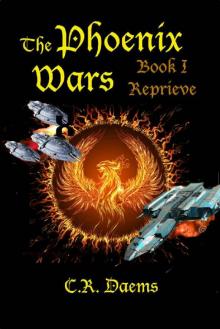 The Phoenix Wars: Book I, Reprieve
The Phoenix Wars: Book I, Reprieve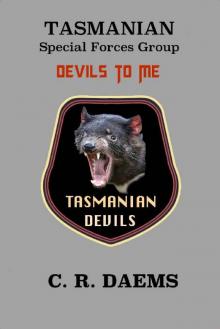 Tasmanian SFG, Book II: Devils to Me (Tasmanian series 2)
Tasmanian SFG, Book II: Devils to Me (Tasmanian series 2)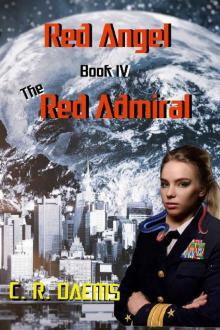 The Red Admiral
The Red Admiral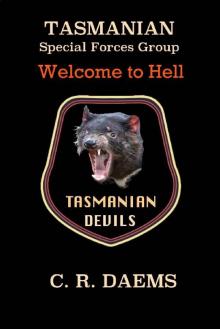 Tasmanian SFG: Welcome to Hell
Tasmanian SFG: Welcome to Hell Megan
Megan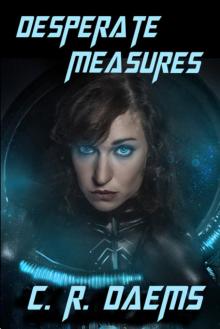 Desperate Measures: The Issog
Desperate Measures: The Issog Red Angel: Coup d'etat (Red Angel Series Book 5)
Red Angel: Coup d'etat (Red Angel Series Book 5) The Shadow Ryana (The Shadow Sisters Book 1)
The Shadow Ryana (The Shadow Sisters Book 1) Riss Series 5: The Riss Challenge
Riss Series 5: The Riss Challenge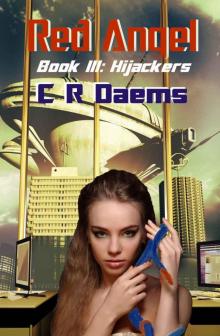 Red Angel: Book III: Hijackers
Red Angel: Book III: Hijackers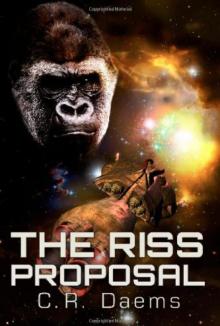 The Riss Proposal: Book II in the Riss Series (Volume 2)
The Riss Proposal: Book II in the Riss Series (Volume 2)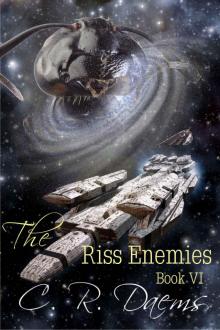 The Riss Enemies: Book VI (The Riss Series 6)
The Riss Enemies: Book VI (The Riss Series 6)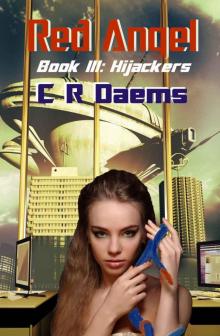 Hijackers
Hijackers The Shadow Gypsy (The Shadow Sisters)
The Shadow Gypsy (The Shadow Sisters) The Seer Renee
The Seer Renee Kazak Guardians: Book III: Megan (Kazak Guardians Series 3)
Kazak Guardians: Book III: Megan (Kazak Guardians Series 3)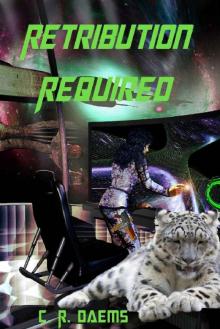 Retribution Required
Retribution Required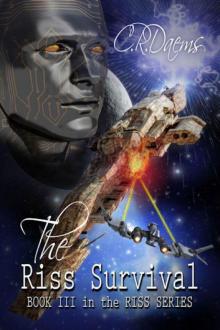 Riss Series 3: The Riss Survival
Riss Series 3: The Riss Survival The Riss Gamble
The Riss Gamble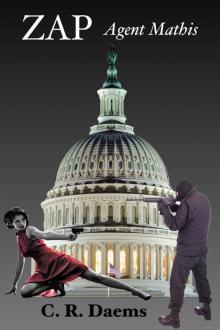 ZAP Agent Mathis
ZAP Agent Mathis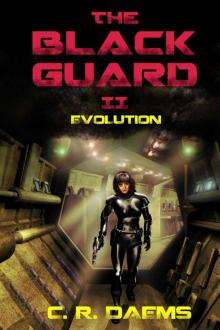 The Black Guard: Book II: Evolution (Black Guard Series 2)
The Black Guard: Book II: Evolution (Black Guard Series 2) Zara the Wolf
Zara the Wolf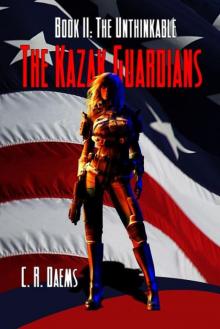 C.R. Daems - Kazak 2 - The Unthinkable
C.R. Daems - Kazak 2 - The Unthinkable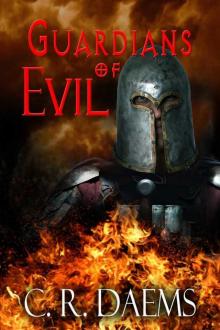 Guardians of Evil
Guardians of Evil Red Angel: Book II: Raiders (Red Angel Series 2)
Red Angel: Book II: Raiders (Red Angel Series 2) Talon of the Unnamed Goddess, a Fantasy Adventure
Talon of the Unnamed Goddess, a Fantasy Adventure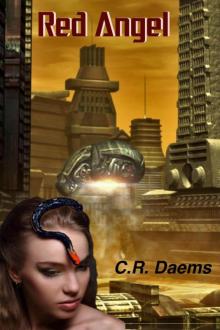 Red Angel
Red Angel Women of Power
Women of Power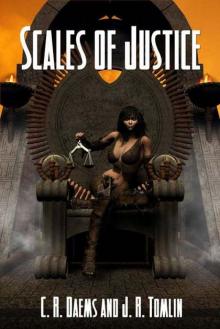 Scales Of Justice
Scales Of Justice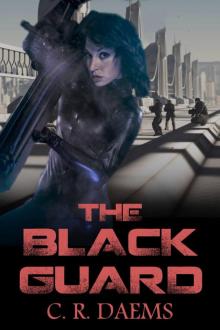 The Black Guard
The Black Guard